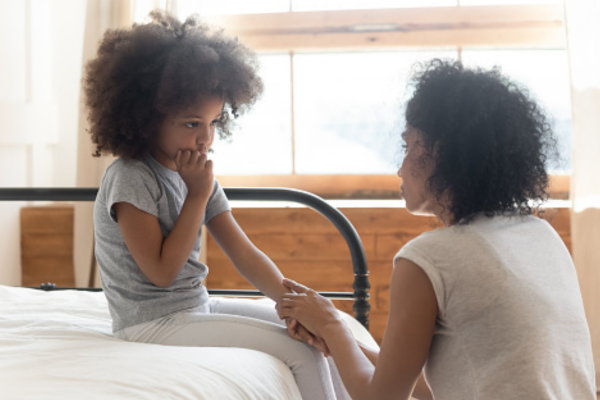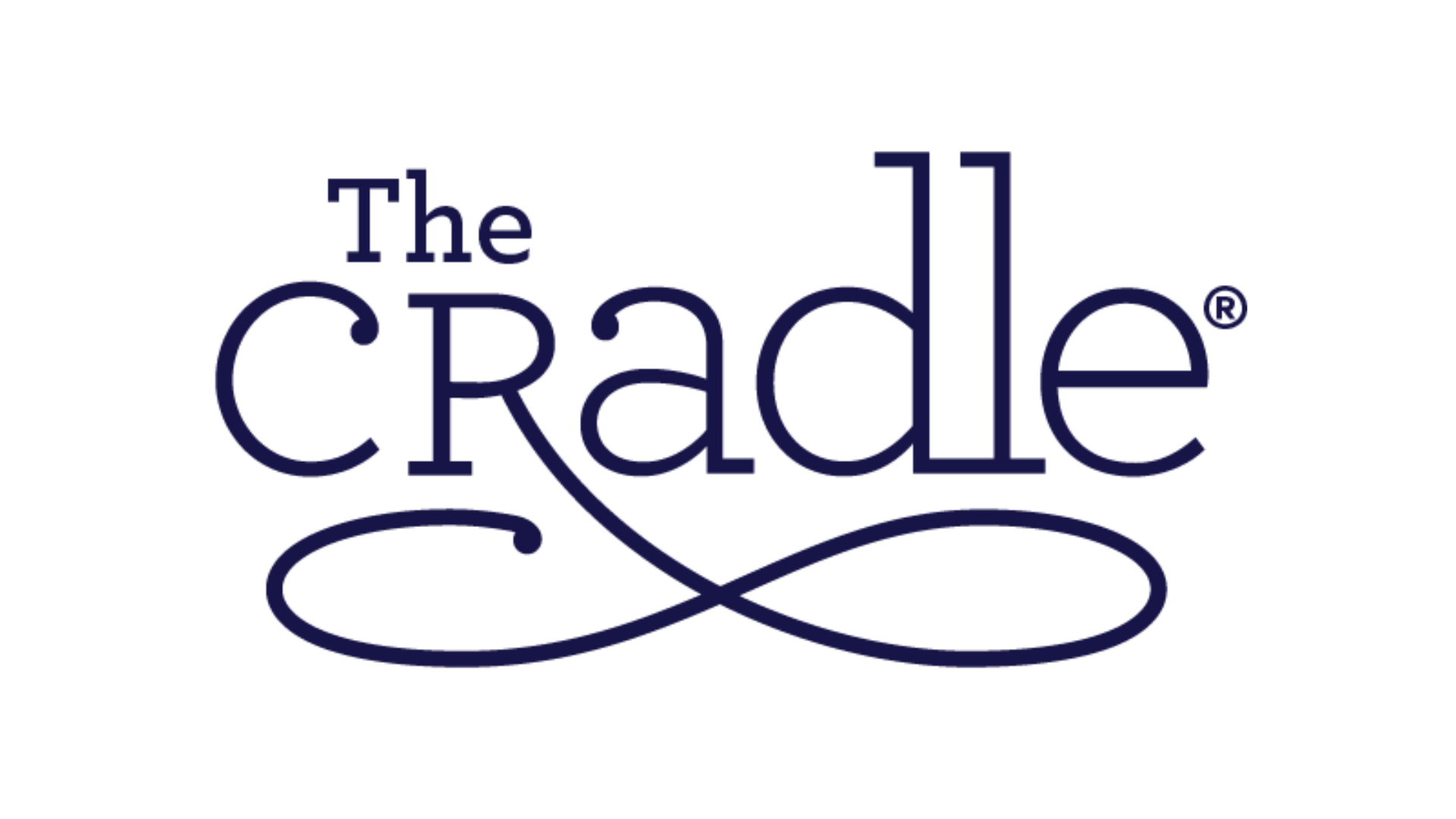Early and open communication about adoption is key, but how do you know when to tell your child their adoption story? We discuss some major considerations parents should keep in mind as well as how to introduce the topic when your child is still young.
Talking about adoption can be tricky, and many new parents wonder when (and how) they should bring the topic up with their child. Yet having age-appropriate conversations about adoption is vital to nurturing a healthy parent-child relationship. It’s important to have a strategy for starting these conversations, even if you’re worried about how your child will react, what they’ll ask you and how it will affect your relationship. There isn’t one right method—your conversations will depend on a number of factors specific to your child and family.
In this article, Dori Fujii, Adoptive Parent Counselor and Post-Adoption Therapist at The Cradle, shares some natural ways to approach these conversations and offers some handy resources that may be helpful for you and your child.
Why It’s Important to Tell Your Child About Their Adoption
Open adoption is the official philosophy of The Cradle. In an open adoption, birth parents and adoptive parents exchange identifying information, whether or not they remain in contact. Communicative openness is when adoptive parents share the adoption story and all known information with their child, talk about their birth parents and convey that they hold the birth parents in high regard.
Trust is essential in any relationship, and it’s the same for a parent and child. If your child learns about their adoption history when they’re older or from another source, they may have difficulty trusting you (or their birth parents) in the future. Knowing they are adopted can also help your child form their sense of identity—adoption is part of their story, and they have a right to know that.
Your Child May Get Upset—and That’s Okay
Some parents are afraid to bring up the topic for fear of upsetting their children. “I think one of the things parents have to accept is that adoption is a hurtful thing in some ways,” says Fujii. “It’s inevitable that a child lost a family to gain [a] family.”
Having conversations about adoption allows children to explore their emotions in a safe space. They can learn how to express and process their feelings with the support and love of their family.
Trust is essential in any relationship, and it’s the same for a parent and child. If your child learns about their adoption history when they’re older or from another source, they may have difficulty trusting you (or their birth parents) in the future. Knowing they are adopted can also help your child form their sense of identity—adoption is part of their story, and they have a right to know that.
Start Talking About Adoption Early
In decades past, advice on when to start talking to your child about adoption varied significantly. Today, most experts recommend telling children they are adopted when they first come home with you, even if that means just starting to tell the story to your infant child. “As a parent, you should be practicing, telling, building [and] creating the narrative… about their adoption story,” says Fujii,” and the easiest way to do that is starting from the very beginning.”
An added benefit of starting early? You’ll get lots of practice. You can regularly use adoption language even if your child is too young to fully understand what you’re saying. This will help you and your child get used to talking about adoption naturally. Don’t worry if you feel a bit silly or are unsure about what to say at first—you’ll become more comfortable and confident as time goes on.
How to Prepare for a Conversation With Your Child
Thankfully, there are many resources available to help adoptive parents prepare for these conversations. Fujii recommends taking pre-adoption classes focusing on identity and talking about adoption. (The Cradle offers many of these classes as part of the home study process.)
There are also plenty of great books (we really like the options from Tapestry Books) and insightful articles (such as those from Adoptive Families and the National Council for Adoption) to help parents feel more prepared to have these conversations with their children.
Many parents also find it helpful to connect with other adoptive parents individually or through a support group. While not every parent needs a therapist’s advice before addressing the topic with their child, it may benefit families who don’t know how to discuss more complicated adoption stories.
Questions Your Child May Ask
It’s helpful to prepare thoughtful responses ahead of time. While every child’s response will be different, some common questions include:
- Why didn’t my birth parents want me?
- Do I have other siblings
- Where are my birth parents?
- Can we find them?
- Why can’t they live with us?
How you address these questions will vary depending on your child’s birth story, but always stay honest, positive and age-appropriate when giving your answers. Use all the resources at your disposal, including seeking advice from an adoption-competent therapist and talking to other adoptive parents.
How Should You Tell Your Child They Are Adopted?
There are many age-appropriate ways to communicate with your child about adoption. If you have a partner, discuss the topic ahead of time and come up with a strategy together.
Start With a Simple Version of Their Adoption Story
Decide on a truthful and constructive narrative to share with your child. Fujii reminds parents to keep things simple at first. “Children understand adoption the way they understand everything else, which is a little bit at a time,” she says.
Even when children are very young, you can start by telling a simplified story of their adoption, reading children’s books about adoption, and hanging up pictures of birth parents in cases of open adoption. As children get older, you can share more of their stories—just be ready for more complicated questions.
Parents might be tempted to bend the truth for children with challenging adoption stories, but it’s important to never lie. You can tell the truth while staying positive and using age-appropriate language.
Talk About Their Birth Parents
Additionally, Fujii suggests regularly talking about birth parents throughout your child’s life. Some suggestions: On your child’s birthday, say something like, “I’m thinking of your birth mom today… it was a big day for all of us.” If you know what their birth parents look like, you can tell your child when you see similar characteristics, such as their birth mom’s eyes or birth dad’s nose.
Discussing birth parents allows your child to positively explore their identity and how adoption has shaped their lives. “It’s helping kids weave a story that they can understand,” says Fujii.
Open Communication (and Open Adoptions)
If you have an open adoption, The Cradle recommends cultivating the relationship between your family and your child’s birth parents. Your child may have questions for them as they get older, and maintaining a good relationship will allow those discussions to happen more easily when the time comes. Even if you don’t have an open adoption, maintain open communication with your child to ensure they feel comfortable asking about their adoption any time.
Be Honest (But Gentle) With Difficult Information
Regardless of the type of adoption, stay positive when talking with your child about their birth parents. Sometimes this just means transparently sharing all information about their adoption story. However, this may be more complicated in cases where your child’s birth story involves difficult information.
Fujii gives the example of when sexual assault or domestic abuse are part of the story about a child’s birth parents. Often the most direct explanation of this part of their story is too much to hear at a young age. Still, Fujii says, “you always want to start by telling the truth, [so] you’re not setting up a foundation that later on is going to be contradicted by the facts.”
In these cases, you may start by explaining that “[while] some families have a baby because there’s a lot of love in the family, sometimes that’s not the way it happens.” Then over time, you can give additional information and context about the situation in an age-appropriate manner, says Fujii. “So that the discussion of somebody stepping over that line happens in the context of a lot of other discussions.”
Don’t Be Afraid to Ask for Help
Adoption is a lifelong journey, and you shouldn’t be afraid to ask for support along the way. We provide webinars, workshops and other educational resources about everything from mealtimes and discipline to tax credits and legal considerations. For one-on-one support, we also offer adoption-competent counseling. Request an appointment with one of our therapists through our online form or by calling us at 847-733-3225.














